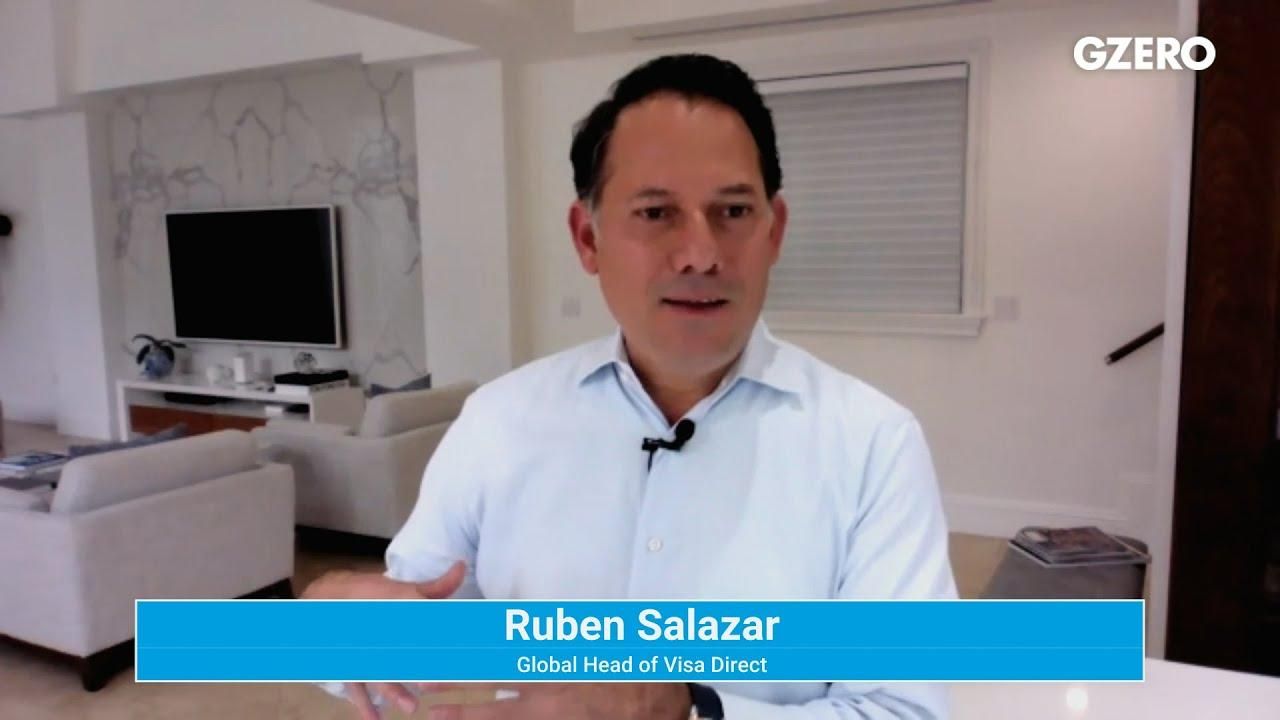
How Can We Get Unbanked People to Go Digital? | Closing The Gap | GZERO Media
Sending remittances can be prohibitively expensive. How come?
It costs a lot to manage cash in a secure way for unbanked people, Rubén Salazar, global head of Visa Direct, says during a livestream conversation on closing the global digital gap hosted by GZERO in partnership with Visa.
But some players are making progress in reducing costs, which the UN wants to cap at 3% by the end of the decade.
For Salazar, we need to tackle the problem holistically. That's why Visa has just inked a deal with Singaporean B2B payments platform Thunes to integrate digital wallets for unbanked people with Visa's digital payments network.
From Your Site Articles
- What We're Watching: Digital payment lifelines for cash-strapped ... ›
- Hard Numbers: Americans use less cash, Africans heart mobile ... ›
- Hard Numbers: Mexicans benefit from US labor boom, UAE-Euro ... ›
- Money on the move - GZERO Media ›
- Remittances We're Watching: OFW superheroes, Central America ... ›